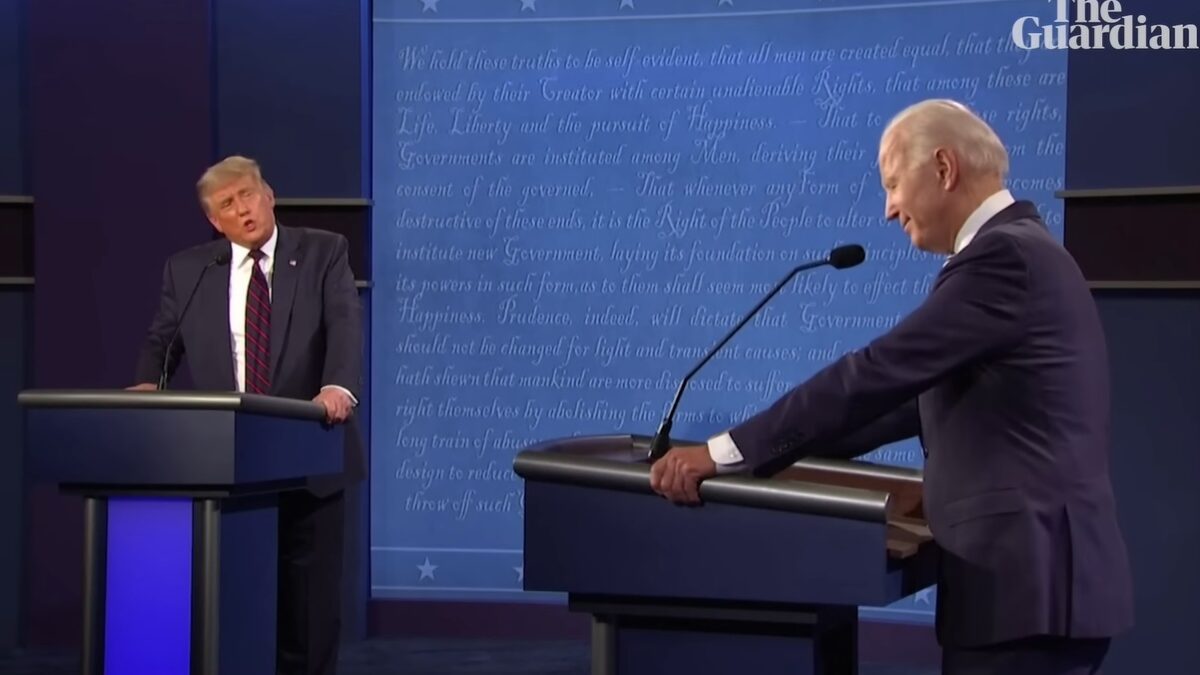
Fantasy football is getting a bad rap in the media this week, from jerks on Twitter harassing players to know-nothing columns deriding the game millions play every week. Let’s set the record straight: fantasy football is an excellent game, makes you a better fan of football, and is something anyone can enjoy.
If you haven’t caught on, I’m writing in response to Aaron Gleason’s string of thoughts on fantasy football. I hesitate to call it an argument or essay, as it doesn’t really provide much in the way of evidence nor depth in the opinions put forward. Regardless, let’s examine what he has to say.
‘Fantasy Football Makes It About Math Instead of Poetry’
I’m sure a number of mathematicians would be more capable than I to explain the poetic nature of mathematics (yes, there are academic papers on the subject), but let’s ignore the self-described philosopher’s distaste for such base indulgences as “numbers” or “quantitative-based reasoning” and instead focus on his argument: “Fantasy Football sterilizes away all this passion and poetry. These men risk life and limb for our entertainment every autumn, and reducing them to numbers is simply wrong. The passion and grit are what make football great, not the stats.”
Gleason’s reasoning represents a fundamental misunderstanding of why we use statistics in sports in the first place. There’s no conceivable way to boil down the human element into a single number, but you can learn a huge amount about the way the game is played by using statistics as a guide.
It’s a convenient strawman to beat up, but nobody is suggesting that the sum of a player’s performance is determined by his weekly fantasy scores or even his career passer rating. Statistics aren’t predictors of future performance, but they are helpful guides that, when combined with a knowledge of the game, make for better ability to understand what’s happening on the field. Using statistics doesn’t cheapen what happens on the field; it further enhances our understanding of a game we already love.
‘Real Football Increases Your Team Loyalty’
I’m a huge Broncos fan. I grew up rooting for the team, watching John Elway, Terrell Davis, and Rod Smith carry the team to multiple Super Bowls. I never left when Josh McDaniels tried to ruin the team (likely under Bill Belichick’s orders) by wasting a first-round pick on Tim Tebow. I watched every second of the blowout loss to the Seahawks in Super Bowl 48. And I paced non-stop until I saw Von Miller lift the Lombardi in 2016. I’m a ride-or-die Broncos fan. But playing fantasy football doesn’t make me disloyal, as Gleason puts it:
If I were dumb enough to play FF, I would just concede my bye weeks, because I don’t care about the other 1,426 players in the NFL. I only care about the 46 guys lucky enough to be wearing the same symbol that sits center stage on the U.S. armed forces roundel: the five-pointed star. If my 46 guys aren’t suiting up I don’t even turn on my TV.
I just don’t get this. After saying that “real” football fans watch for the poetry, why ignore the rest of the league? Why would anyone want to miss the greatest comeback in NFL history last year during the Super Bowl? I absolutely loathe the New England Patriots and specifically Tom Brady for whatever deal with the devil he concocted to stay young and good at football forever. But it was easy to see the incredible talent and, dare I say, poetry that he and his team displayed as they stole victory from the jaws of defeat.
Deeply compelling stories happen every weekend, during every game, and people would miss incredible moments of human achievement if they only turned on the TV for their team. Fans don’t have to give up their fandom to appreciate and enjoy the performance of other teams. Not to mention, it’s fun as all heck to turn on a division rival’s game and temporarily root for their opponent. Gleason says:
Fantasy football undermines the most important part of sports. Sports are supposed to increase loyalty, deepen community, teach us to deal with loss and be gracious winners. Fantasy football throws all that good stuff into the trash, replacing it with an individual mercenary stats game.
Playing fantasy football doesn’t close you off to your team, it opens you up to the league. I live on the east coast now, so I don’t get to watch many Broncos games anymore. Instead I’m mostly treated to Kirk Cousins’ interception-fests. But now I get to enjoy teams and games I otherwise wouldn’t care about, because I know about and am rooting for specific players.
Fantasy football can also be a great tool for community. I, like many, play in multiple leagues, one with colleagues at work and another with friends from high school. The high school league helps me keep connected with old friends who now live scattered around the country. We keep the conversation going year-round and it helps keep the gang in touch. Friends, family, and coworkers around the country do the same.
Fantasy football is a great game for people who enjoy not just their team, but the sport of football. You learn more about special players on every team around the league and have a better understanding of the game as a whole, not just one’s narrow window.
‘Fantasy Football Makes You Feel Ashamed’
Some arguments just aren’t worth dignifying with a response. Don’t be silly.
Fantasy Football Focuses on the Game and the Players
Since the back and forth over kneeling for the national anthem, it’s been hard to find any news and analysis on the NFL that isn’t soaked in politics. For many fans, sports is a refuge from the day-to-day demands of work and our increasingly destructive political life, but that just hasn’t been the case when one turns on the TV or talk radio. As Ben Domenech has documented, politics and outrage are key parts of the new ESPN formula. But fantasy sports analysis are an oasis in this desert.
Fantasy podcasts, shows, and articles don’t have time or space to wax political on the latest outrage. They’re focused exclusively on the on-the-field-product. Which cornerbacks are matching up with which wide receivers? What unknown rookie is poised to make a big splash with a new opportunity on the field? How are coaches going to respond to their opponents’ gameplans?
Fantasy analysts are generally focused like a laser on the sport and none of the tertiary distractions. If you’re looking for sports talk that’s about what happens on the field, not mindless hype, there’s no better source than fantasy sports.
Don’t Be a Fantasy Football Hipster
I get it: sometimes it’s just fun to be the obstinate one who refuses to follow the crowd. As a millennial, I understand the hipster impulse that pulls at us all sometimes. But you can resist the pull. Last year my wife decided to join a fantasy football league with members of our church. She’s never been much of a football fan, but she joined the league with enthusiasm, learned about the game and about the players, drafted a solid team, and ended up winning the whole league. She watched more football with me last year than she’s ever watched before, an interest sparked in large part by fantasy football.
It’s not too late to join a fantasy football league. Gleason, if you’re up for a challenge, I’d be happy to set up a league and take you on (maybe some Federalist readers would enjoy joining it too). You know, if you’re man enough to give it a go.








